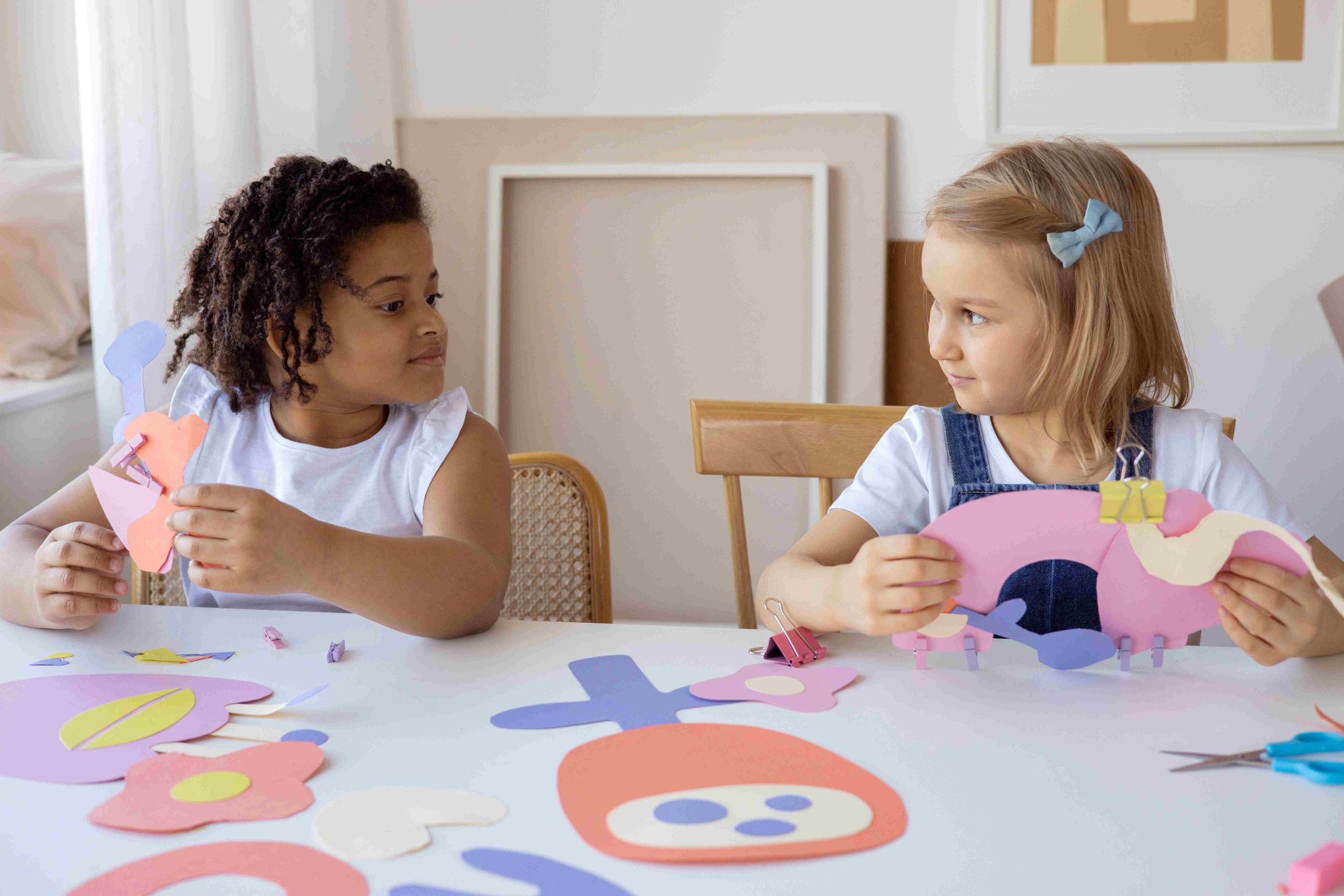
Why Interactions Matter: The Crucial First Five Years in Preschoolers’ Development
The growth of preschoolers is most crucial during the first five years of their lives. This period lays the foundation for their future development—physical, social, emotional, and cognitive. Research indicates that the quality of interactions during this time significantly impacts a preschooler’s development. This article explores the importance of interactions for preschoolers’ growth and development in their first five years.
Interactions’ Impact on Brain Development
The brain of a preschooler undergoes significant development in the first five years. Interactions with caregivers, peers, and the environment play a vital role in shaping brain development. Positive interactions such as responsive care and stimulating activities facilitate strong neural connections, while negative interactions like abuse and neglect can hinder brain growth.
Research shows that the type of interactions preschoolers experience during their formative years can have long-term effects on their cognitive development, academic performance, and mental well-being. Positive relationships foster a strong sense of self and resilience, contributing to success later in life.
The Value of Social Interactions for Young Preschoolers
The first five years are critical for developing social skills in preschoolers. They begin to understand and navigate social connections with peers and adults, shaping their sense of self. Positive interactions with parents, caregivers, and peers support the development of strong social-emotional skills such as empathy, collaboration, and communication.
Positive interactions also help preschoolers regulate their emotions and manage stress effectively. Safe attachments formed through responsive and loving interactions promote emotional stability and resilience, while negative interactions can lead to behavioral issues and developmental delays.
Interactions’ Role in Language Development
Language development in preschoolers is crucial in the first five years. Interactions with caregivers and exposure to diverse linguistic situations are key factors. Engaging in conversations, reading aloud, and exposing preschoolers to varied language experiences prepare them for academic success and effective communication.
Poor language exposure or negative interactions during early years may hinder language development, impacting academic performance and social-emotional well-being in the long run.
Physical Development and Interactions
Interactions with caregivers and the environment significantly influence physical development in the first five years. Responsive care, play, and exploration support gross and fine motor skills development, as well as sensory processing. Negative interactions like neglect or abuse can lead to physical development delays and coordination difficulties.
Development of Interactions and Cognitive Abilities
The first five years are crucial for cognitive development in preschoolers. Positive interactions such as play, exploration, and exposure to stimulating environments enhance cognitive abilities such as memory, attention, problem-solving, and creativity. Limited or negative interactions during early years may lead to cognitive delays affecting academic performance and overall well-being.
Early Life Experiences’ Impact on Brain Development
Early experiences significantly impact brain development in preschoolers. Positive experiences strengthen neural connections, leading to better cognitive, emotional, and social outcomes. Negative events like toxic stress or neglect can harm brain development, resulting in emotional and behavioral challenges.
Creating a nurturing environment with responsive care, enriching experiences, and opportunities for play and exploration is essential for preschoolers’ healthy development. Investing in their well-being during these critical years sets a strong foundation for lifelong success and well-being.
The Importance of Play in Preschoolers’ Development
Play plays a vital role in preschoolers’ overall development. It enhances their physical, cognitive, emotional, and social skills. Through play, preschoolers learn new concepts, engage with others, explore their environment, and develop creativity, problem-solving, and social abilities.
Providing opportunities for both unstructured and structured play encourages holistic development and fosters a love for learning and exploration in preschoolers.
Early Social Contacts and Their Significance
Social interactions are crucial for preschoolers’ growth. They learn communication, teamwork, problem-solving, empathy, and emotional regulation through social engagement. Parents and caregivers play a key role in facilitating social connections and providing opportunities for socialization.
Understanding and supporting preschoolers’ social needs contribute to their overall development and well-being, ensuring they develop strong social skills and positive relationships.
Early Language Development and Its Impact on Success
Early language development is foundational for success in academics and life. Parents and caregivers can support language development through regular conversations, reading, exposure to diverse language experiences, and engaging activities. Strong language skills lay the groundwork for effective communication, literacy, and academic achievement.
A nurturing environment that fosters language development sets preschoolers on a path to success and lifelong learning.
The Value of Responsive Care in Preschoolers’ Growth
Responsive caregiving is crucial for preschoolers’ holistic development. It provides comfort, stability, and support, fostering emotional, social, and cognitive skills. Parents and caregivers who respond appropriately to preschoolers’ needs contribute to their confidence, emotional regulation, and problem-solving abilities.
Creating a responsive and nurturing environment is fundamental in supporting preschoolers’ growth and ensuring their well-being.
Environmental and Cultural Influences on Early Development
Cultural and environmental factors significantly influence preschoolers’ development. Family practices, community values, socioeconomic status, and environmental conditions impact preschoolers’ experiences and opportunities. Understanding these influences helps in creating supportive environments that promote positive development.
By addressing environmental challenges and embracing cultural diversity, parents, caregivers, and communities can create inclusive and nurturing spaces for preschoolers to thrive.
Early Childhood Development, Nutrition, and Exercise
Preschoolers’ overall health and development depend on nutrition and physical activity. A balanced diet rich in essential nutrients supports cognitive growth and physical well-being. Regular exercise promotes motor skills, coordination, and overall physical health.
Encouraging healthy eating habits and providing ample opportunities for physical activity contribute to preschoolers’ optimal development and lifelong health.


